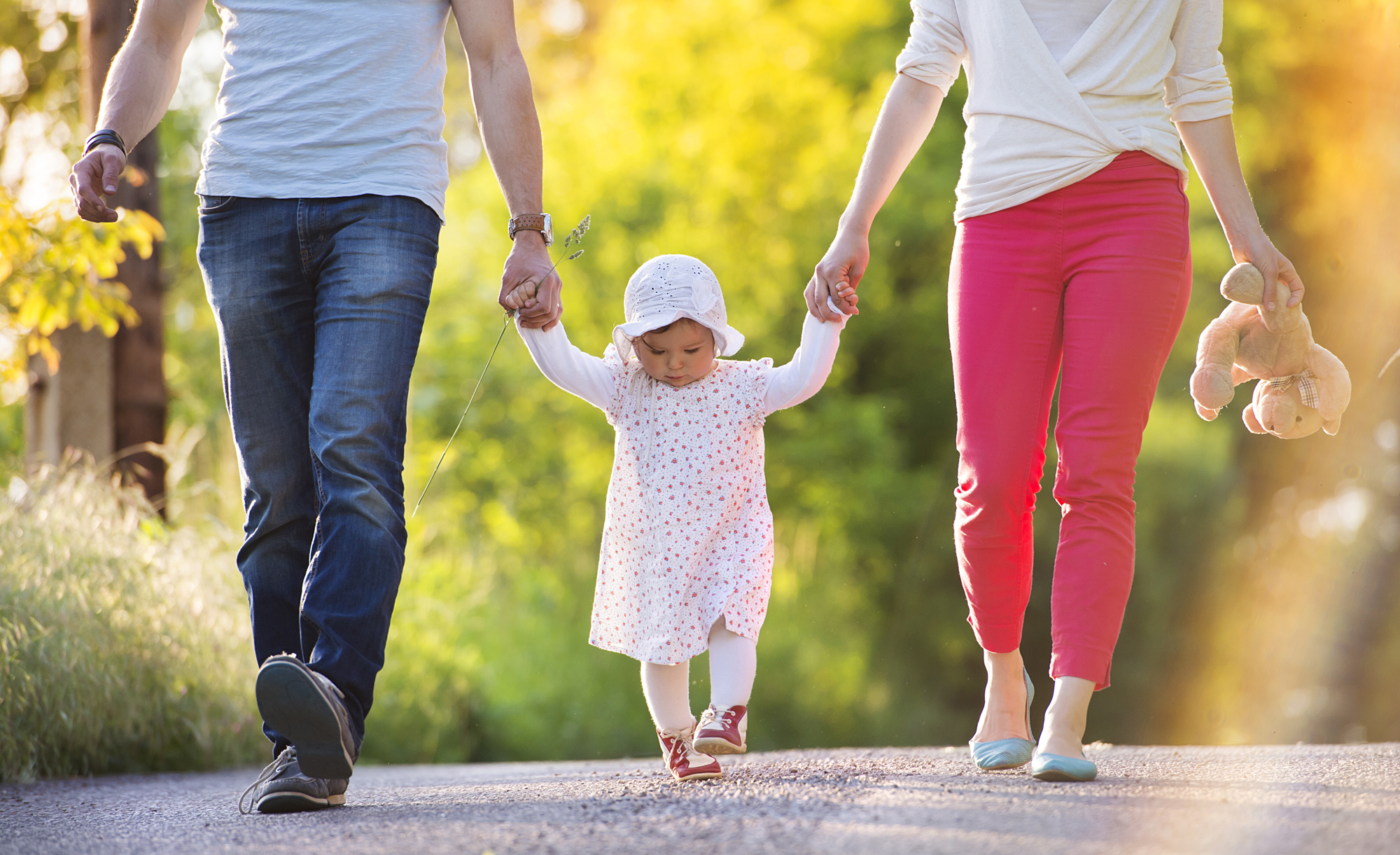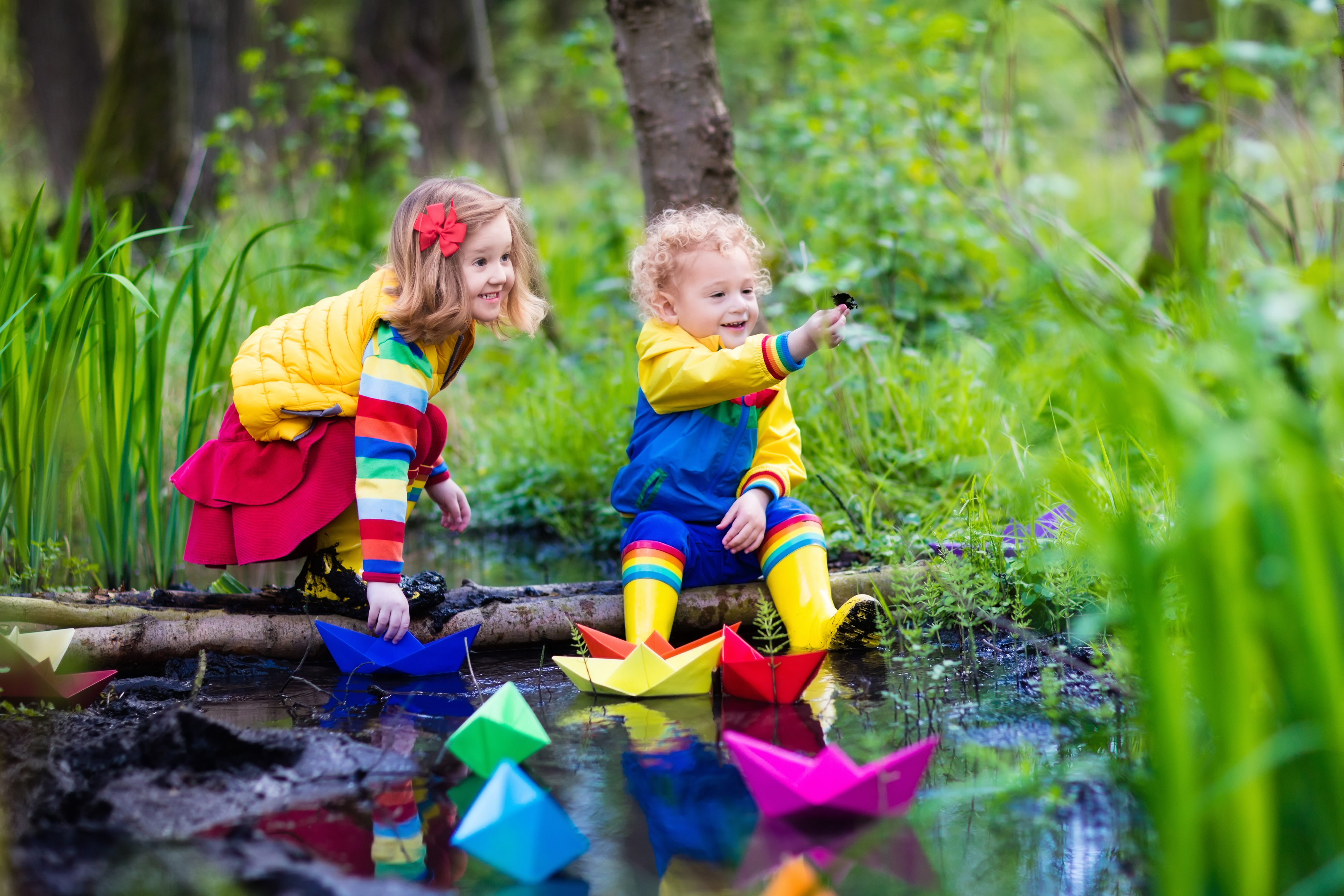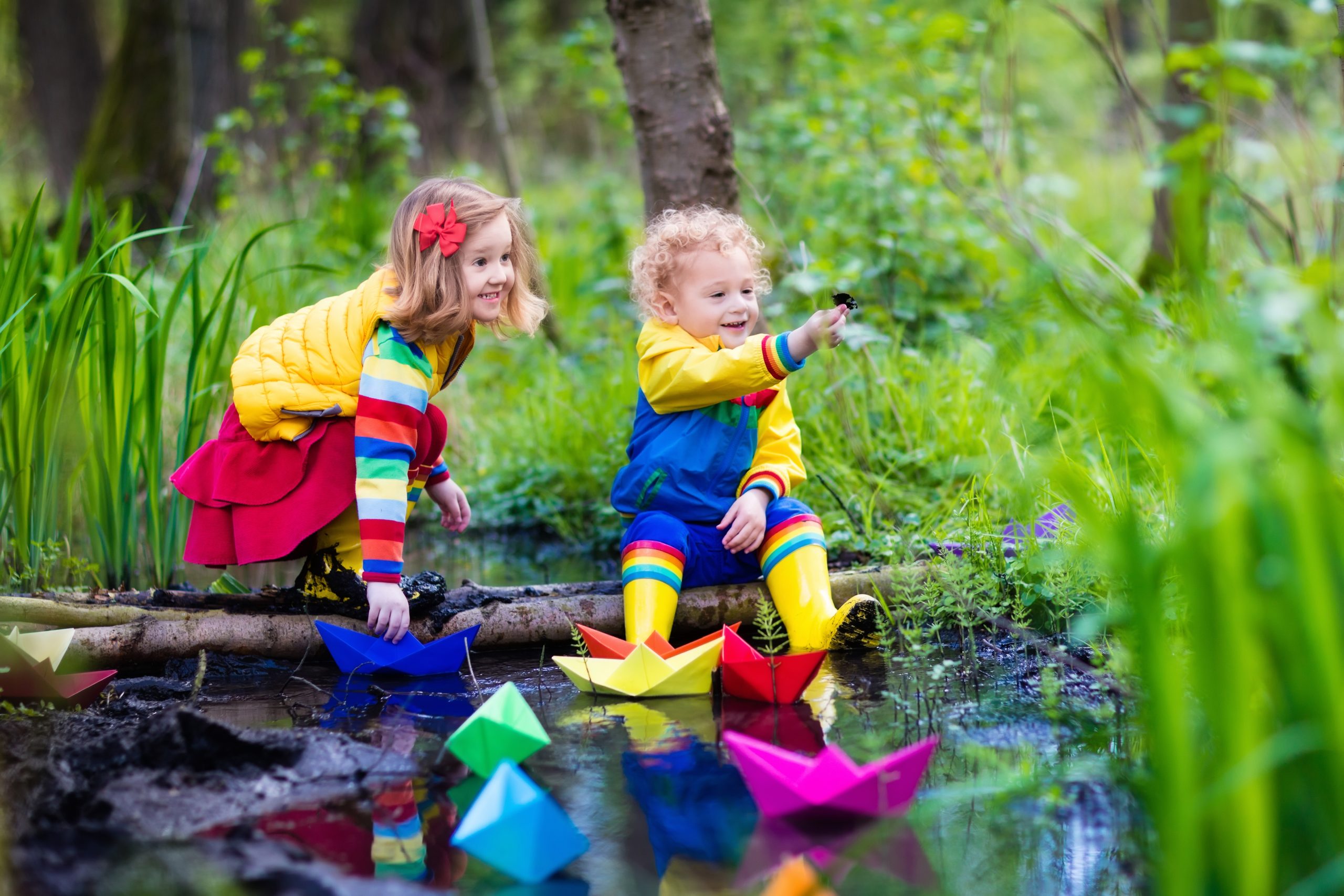Nowadays, many children sadly have limited opportunities to connect with and learn from the outside world and its natural state, especially if they come from a family based in an urban area. Experts say that, for the benefit of our children, this needs to change – the environment should play a greater role in their growth and development.
When I was young, my grandma enjoyed taking me on long walks around the park near where we lived. We often had adventures, my grandma and I, and going to the park soon became my favourite place for them. We would pretend to be explorers, discovering new land as we waded through the head-height blades of grass (well, head-height for a 3 year old), on our way to the perfect picnic spot. She would take me to feed the ducks at the pond and teach me about grasshoppers and dragonflies and beetles. I would run away from her as we played hide-and-seek in the trees and together we collected the different types of leaves that fell from them in the autumn: oak, birch, elm. Eventually, when I grew up a little more, she and my grandpa would teach me how to plant flowers, how to know when the raspberries they grew in the garden were ripe for picking and about the reasons why poison ivy stung so much. I was luckier than I could ever have imagined – despite living in one of the biggest cities in the world, my family found the time and sought opportunities that allowed me to develop the deep appreciation for the environment and its wonders that I still carry with me today. Learning from nature has been beneficial to my growth in many ways, some of which are outwardly evident, some of which aren’t. And with the rise of the dangerous anti climate change movement championed by people in power (hi Donald Trump), it’s more important than ever that we strive to ensure that future generations do not suffer from the consequences of human disregard for nature. The first step is allowing your child to learn from nature, just as I did.

What Are The Benefits?
Richard Louv called the lack of opportunities for children to connect with the natural environment ‘nature-deficit disorder’ in his book, The Last Child in the Woods, opening an important discussion into the developmental effects that learning from nature has on children. The sad truth is that, with parents’ busy modern lifestyle, children are spending more time watching TV and playing video games than they are outdoors being physically active. But why is this situation bad? What about learning from nature is so good for our children? Below are just a few benefits that researchers have found that are worth knowing about:
- It supports growth in multiple development domains – in other words, children benefit intellectually, emotionally, socially, spiritually and physically when they learn from nature.
- It supports creativity and problem solving skills. Studies have found that children play in more creative ways in green outdoor areas and tackle issues more innovatively in classrooms that have a nature-based learning experience.
- It enhances cognitive abilities and improves academic performance.
- It has many physical benefits, including improving levels of nutrition and physical activity and bettering eyesight.
- It reduces stress (even long-term), improves social skills and reduces Attention Deficit Disorder (ADD) symptoms.

Keeping It Interesting
It’s all very well that learning from nature is good for children, but how do we make children who don’t appear to have any interest in nature learn to enjoy being outdoors? The key is to approach the „learning from nature“ experience using many different methods and materials – so as not to allow activities to become mundane. Children who are exposed to nature early on generally continue to appreciate it as they grow older, but older children without this early exposure can find being outdoors boring, gross or both. While teachers can easily teach children about the importance of nature through „Go Green“ initiatives in classrooms (including recycling schemes, conservation projects and starting a team of „Go Green“ helpers), parents should not rely on this alone if they want their child to learn from nature. Some ways parents might do their part is through buying books, singing songs, teaching children to turn lights off as they leave a room and celebrating Earth Day at home. But nothing beats spending much-needed time outdoors with your child, splashing in muddy puddles, pointing out birds’ nests and planting flowers in the garden or at the park. These are priceless opportunities that just can’t be replaced.

















